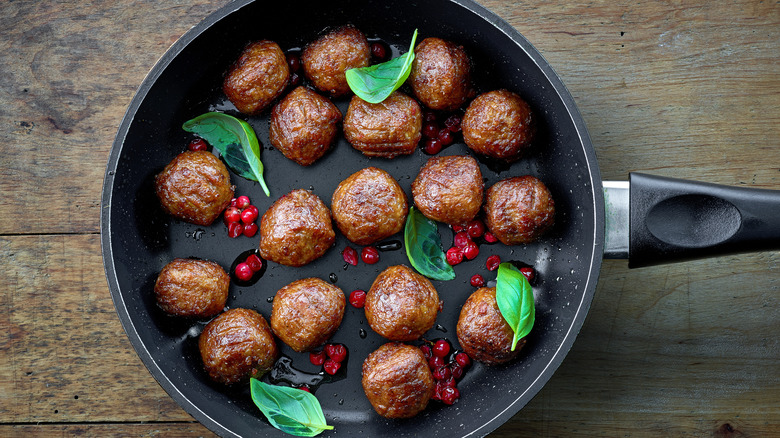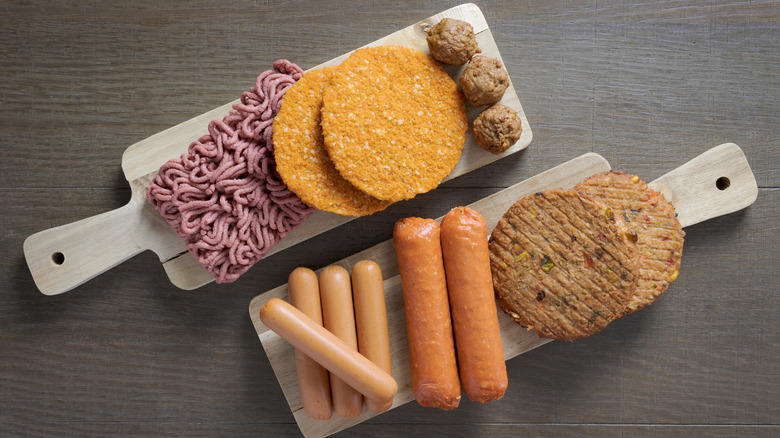Why The Type Of Pan Matters When Cooking Plant-Based Meat
Not only are some plant-based meat varieties extra salty, they can also be extra sticky (via Fueled By Science). So, just like seasoning plant-based meat, the type of pan you use when cooking plant-based meat matters. Whether you're smooshing an Impossible burger patty or forming Beyond Meat meatballs, their tackiness can pose a culinary challenge — leaving you with a mess on your hands that could quickly transfer to your pans, should you choose the wrong one.
Let's be honest, non-stick pans were invented for a reason. And even though vegan butchers prioritize creating alternatives that withstand the same cooking processes as meat, not all are made equally (via USA Today). Not only are some plant-based meats sticky, but depending on the brand you use, it can be a struggle to maintain shape and achieve crispy coatings. These two culinary aspirations are made much easier if you use the right pan.
Which pans should you use and when?
According to America's Test Kitchen, the pan you use to cook your plant-based meat depends on which recipe you're planning on making. For instance, if you're preparing plant-based burgers, chicken cuts, meatballs, taco meat, or other vegan alternatives to foods that generally require a good flip or stir, you should use a non-stick pan. With the addition of a bit of cooking oil, you'll be able to move them around in the pan with no problem while still allowing them to generate a nice golden crust.
Odds are that you'll be using a non-stick pan for all of your plant-based meat needs. But there are a few instances when you can trade it for a stainless steel one — mainly when you're using plant-based meat to create a sauce. From vegan mole to plant-based bolognese, there are many different plant-based meat brands that make it easy to make any of your favorite meat-based sauces meat-free.

